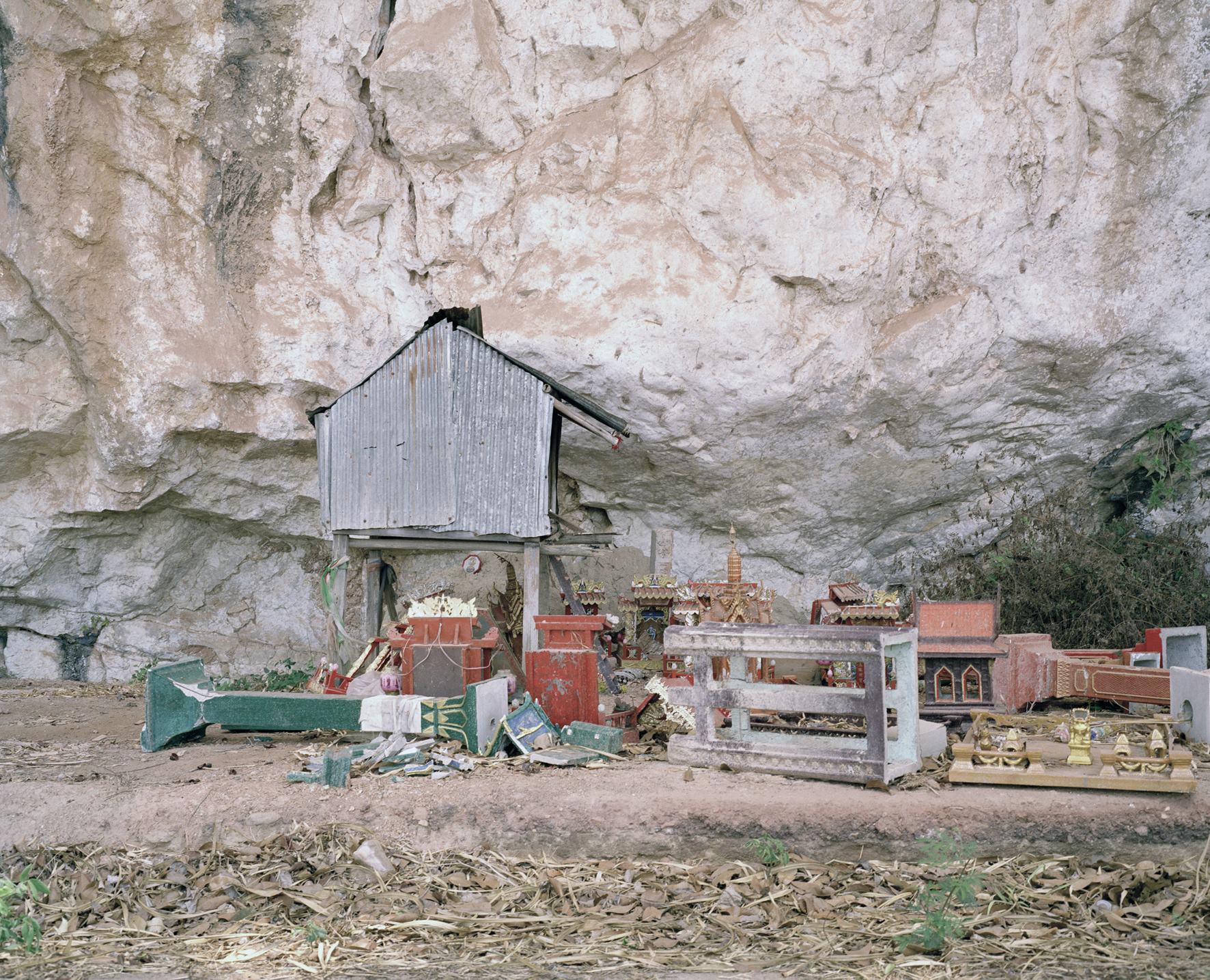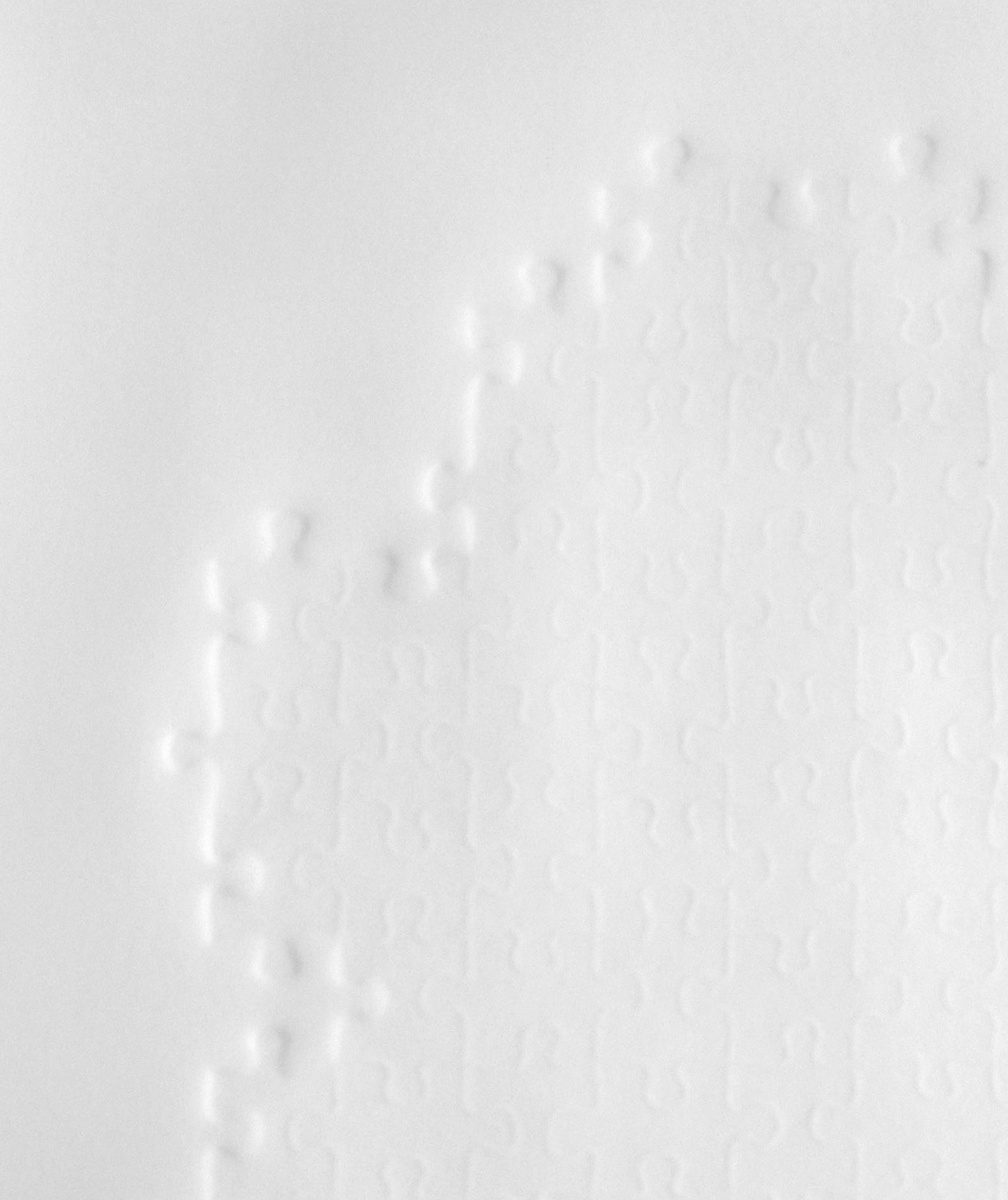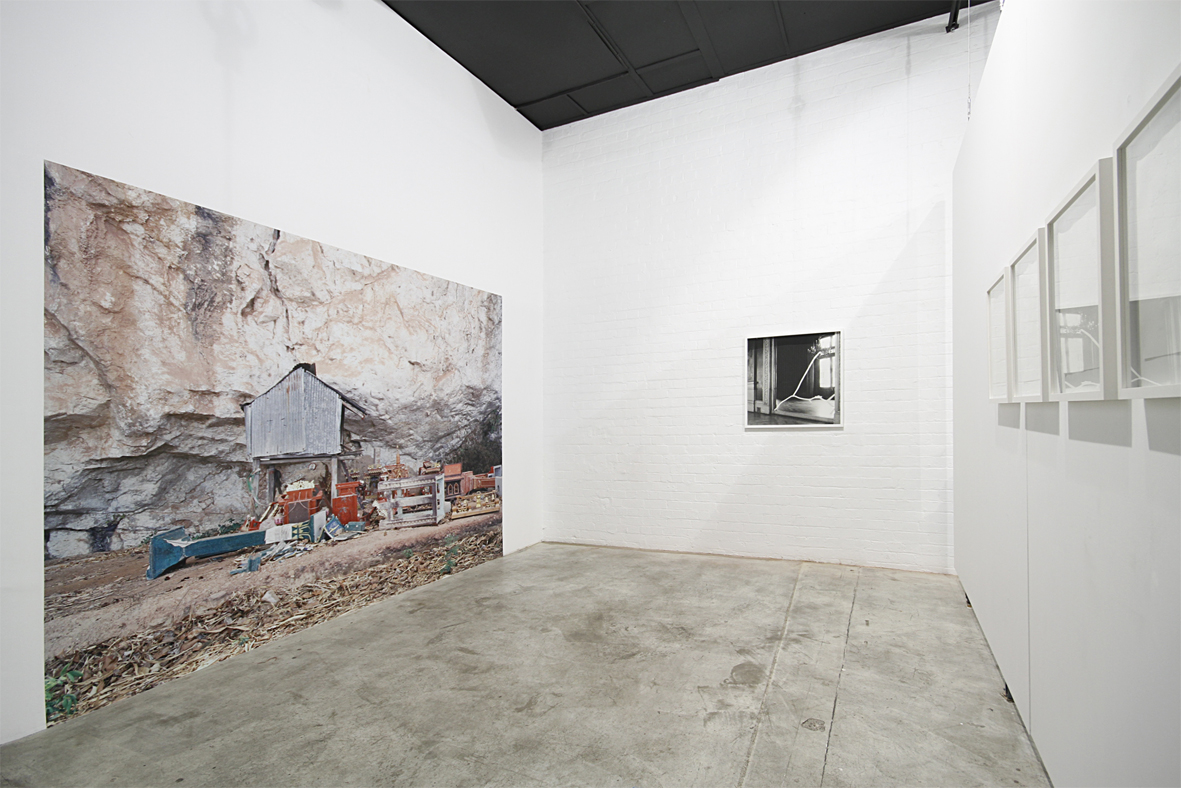On things mended and broken
dianne tanzer gallery + projects, Melbourne
5 - 26 March 2011
Catalogue
In 1342, during a violent storm, the Suffolk village Dunwich, comprising four hundred houses, slipped off the sandy cliffs and into the sea. Formerly England’s busiest port, Dunwich currently sits - not full fathom five - but thirty feet underwater, in the midst of tidal scour, forming a submerged site for watery activity. The town will continue to be led further away from its point on the map by the tides; unmoored foundations acting as a plane to launch it further seaward.
A solitary 13th century Franciscan priory remains. Once, a boundary marker of Dunwich, now a site for historians, archaeologists and tourists, this remnant is expected to follow into the swell by the end of the century. Ghostly church bells ring out from the coastline and spectres are seen haunting the trails around the area. The single church carries with it the weighty evidence of a larger whole, equal parts actual and apparition.
The great strength of nostalgia is the lie it lends to history. But history is just a story in any case. Perhaps history can only ever be historical fiction, where facts act as yolks to the actual narrative. Discourse can never sufficiently allow for universal and whole truths and so as Barthes states, “better the illusions of subjectivity than the impostures of objectivity.”1
This is what Pluta presents to us in this body of work. Like an unanchored metaphor she presents a conceptual space for infinite narratives within the ahistorical moment. And this is a moment where experience prioritises documentation, its methods fetishised, and like a reflex of experience - banal or otherwise - we document constantly. Pluta proposes other possibilities. These places worry time and speak to the ways in which history is full of landslips and sinkholes. Places where a forensic lens is impossible to apply. Lacunae where there are vanished people, vanished places, languages now indecipherable, lost knowledge and abandoned doctrines, impossibly co-present.
So nostalgia’s place is to animate and make colourful and it creates an economy of value. It corrupts and cajoles and enters into the peripheral to enlarge it. It is in the periphery. The combine, enliven and complexify the inanimate. Here, where nostalgia infects the periphery, the referents become inscribed with falsehoods. Here in this place it seems we are able to rediscover the natural world, impregnating the inert with possibility. The church bells toll out at sea. This is how we plot between these historical oubliettes - literal or otherwise - weaving a subtext of sentiment between them. Pluta’s imagery coaxes nostalgia (rather than enacting it, these images are unpeopled for a start) instead she presents us with a potentiality for expansion. Faced with this quandary, we are compelled to flood these places – at once familiar and unfamiliar - with this impulse for narrative, for anchoring, for nostalgia.
And so as viewers of Pluta’s work, as with all dreamers, we trespass. Permission is irrelevant. The subjective and the locus for fiction overwhelm. The empty terrain; the corner of a room; a stone wall adrift; all fodder for the compulsively connotating mind. But the desolation of surface, and the reality of the edge gives over to the empathetic, to the emotional lens - the acknowledgment of time passing.
Last night, I dreamt I went to Manderley again...for a while I could not enter for the way was barred to me. Then, like all dreamers, I was possessed of a sudden with supernatural powers and passed like a spirit through the barrier before me....as I advanced, I was aware that a change had come upon it. Nature had come into her own again, and little by little had encroached... And finally, there was Manderley - Manderley - secretive and silent. Time could not mar the perfect symmetry of those walls...I looked upon a desolate shell, with no whisper of the past about its staring walls. We can never go back to Manderley again. That much is certain. But sometimes, in my dreams, I do go back to the strange days of my life...2
- Amita Kirpalani
Notes:
[1] Roland Barthes, The Preparation of the Novel, 1978
[2] Daphne du Maurier, Rebecca, 1938






